
You’ve Got It Wrong! Why We Need to Stop Blaming Gun Violence on Mental Health.

My husband has turned on the evening news. I come into the room and sit in the overstuffed navy chair. I pick up a magazine and settle in with a blanket, my attention going back and forth between a kitchen make-over and the latest headlines. The news commentator then turns to disturbing reports about gun violence on our streets today. I pause and listen. It all feels so tragic and hopeless – my heart hurts. The commentator brings on an “expert” to talk about what can be done to stop senseless and horrendous killing. I roll up the magazine and squeeze it listening intently, hoping to hear some real answers.
The “expert” begins to explain that it is people with mental illness who are causing these horrific acts, and the media personality enthusiastically agrees. I shake my head in disbelief knowing that mental health is not to blame and knowing that this misinformation hurts many people. How dare they pass on this harmful narrative?
It took me many years after my diagnosis before I could say the words “mental illness” without hesitating. Growing up in the 60’s and 70’s the words “mental illness” and “psychiatrist” were the punch lines of many jokes, suggesting that someone with a mental illness was crazy. So, when I first experienced symptoms of depression and anxiety, I was left suffering in silence with not only the pain and disability of my illnesses, but also shame’s humiliation and hopelessness.
Eventually I found the courage to reach out for help and was diagnosed with what is now termed, “Major Depressive Disorder” (MDD) and “Generalized Anxiety Disorder” (GAD.) I was relieved to learn from my doctor that what I was experiencing were real biological illnesses with real answers for healing and becoming well. I also learned that like myself, one in six people will have a depressive episode sometime in their life. This means someone you know, and love lives with mental illness. No one is immune.
Unfortunately, all of the efforts made over many years, by many people, to save lives is thwarted quickly by politicians and media personalities making misinformed statements. Just like the one I heard on TV. A recent letter sent out by the Depression and Bipolar Support Alliance (DBSA) explains it this way, “In the responses to heightened community concerns over the threat of mass shootings, numerous public officials and media in recent years have pointed to ‘mental illness’ as a simplified explanation for these terrifying acts of violence. The claim is false and discriminatory.”
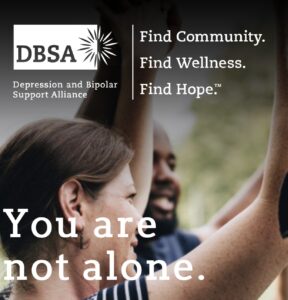
Click Here for the DBSA website
DBSA goes on to say that previous violence is the only evidence-based predictor of future violence. Having a history of violence, youth justice-involvement, physical interpersonal abuse, and parental justice-involvement are the key predictors of future violence.
Studies show symptoms of mental illness by themselves rarely cause violent behavior and thus cannot reliably predict it. In fact, according to the Mental Health America Fact Sheet on Gun Deaths, Violence, and Mental Health, 95 – 97 percent of homicidal gun violence is not carried out by individuals with mental health conditions. To say otherwise is misleading and wrongfully points a finger at tens of millions of people who have experienced or are living with mental health conditions.”
The National Alliance on Mental Illness, (NAMI) joins in by saying when it comes to mass shooting, “Mental illness is not the problem. It is incorrect and harmful to link mental illness and gun violence, which is often the case following a mass shooting. Pointing to mental illness doesn’t get us closer as a nation to solving the problem and doing so leads to discrimination and stigma against those with mental illness.”
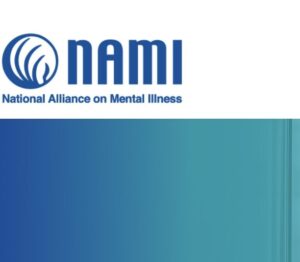
Click here for the NAMI website
We’re all horrified and sorrowful when we hear of a mass shooting. The shooter is likely suffering from anger management, addictions, or other problems. Yet blaming mental illness is wrong. It is about as helpful as saying, “The shooter has a history of eating apples.” The following are a couple of ideas that I have come across that as a community we can consider to help stop these unspeakable acts of violence.
- Pass legislation to increase the availability of threat assessment training at the local, state, tribal, and national levels.
- Fully implement the existing federal background check requirement for firearms purchases.
- Make sure all our schools have strict safety procedures.
- Encourage media members and politicians to not speak the name of the shooter, so they do not gain the public recognition and notoriety often sought by the shooter.
And please know that another important way we can save lives is by speaking up when you hear discriminatory talk against people with mental illness. The term “mental Illness’ covers so many painful and debilitating diseases, to use it to describe the intent and motive of criminals is damaging. Sadly, many people continue to suffer in silence with a stigma too weighty to come out from under. This is a far-reaching problem because undiagnosed mental illnesses cause unnecessary suffering in ways such as: pain, disability, divorce, job loss, addictions, poor quality of life, and suicide. It is imperative to stop the silent suffering and help people to obtain the lifesaving answers that are available.
To assist in eliminating the stigma once and for all I have learned to be committed and confident speaking up about my illnesses. I have been involved for years with programs such as NAMI’s “End the Silence Program”, a community outreach Program called “SOS” meaning Stamp out the Stigma by Sharing Our Stories, and Creative Nonfiction Magazine’s, “Writing Away the Stigma” initiative. By my side, thousands upon thousands of people are working to educate the public and erase the stigma, replacing shame with compassion and fear with knowledge. You too can help by providing validation, hope, and direction to those we love that are suffering.
As we come forward helping others to understand these illnesses, we will give those suffering a voice. This will help with early detection, prevention, and loss of life. We can teach our friends and family in a kind way that the power is within all of us to make a difference for good.
Drawing on 30 years of experience living with depression and anxiety, I share powerful personal stories, fresh concepts, spiritual insights, and practical actions for healing and living in wellness in my new book: “Living a Full and Joyful Life with Depression and Anxiety” You can order the book here.
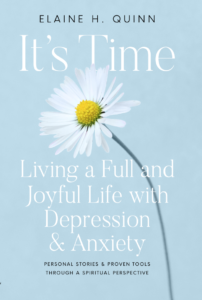
More information and evidence-based facts below:
Mass shootings by people with serious mental illness represent less than 1% of all yearly gun-related homicides. In contrast, deaths by suicide using firearms account for the majority of early gun-related deaths. See: Psychiatry Online
The overall contribution of people with serious mental illness to violent crimes is only about 3%. When these crimes are examined in detail, an even smaller percentage of them are found to involve firearms. See: Psychiatry Online
A research team at Columbia University Irving Medical Center and the New York State Psychiatric Institute (NYSPI) examining 82 mass murders that occurred at least partially in academic settings throughout the world found that most mass murderers and mass shooters did not have severe psychiatric illnesses.
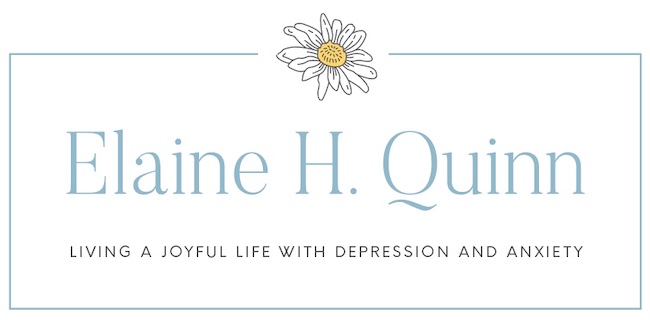









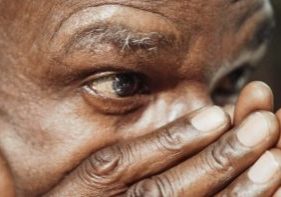
Thanks for sharing those statements and statistics about violence and mental illness. I hadn’t seen those before. I am glad various organizations are speaking up to end the stigma.
Thank you for your comment.There is so much we can do to eliminate the stigma!
As a sister and daughter of two women who are / were (before her suicide) impacted with severe depression, I hope and pray medical scientists and researchers can discover better, more successful treatments for those who suffer in this way, just as they’ve done for cardiac patients. What can be done to encourage and expedite these discoveries?
I appreciate your comment. I am saddened to hear of your loss. I am like you, in hoping for more research in the mental health arena! There are barriers to mental health research that other areas of research do not have. The stigma for one makes it hard to find volunteers. There are groups such as NAMI and DBSA that you can be involved in that are advocating for Mental Health. Along with more research, they are also petitioning insurance companies to provide better coverage for their clients who have mental illnesses. Both are greatly needed!! It is my hope to encourage others to be willing to speak up, volunteer and call attention to these important issues and help save lives. PS. I did write a chapter about suicide and God’s love in my book. I hope it will give you more understanding and comfort. Depression can be fatal, just like having cancer. We need more compassion and understanding.
Elaine,
This is a wonderful and comprehensive explanation about mental illness that should be read by everyone. Could it be forwarded and posted to newspapers around the country in letters to the editor? Thank you for sharing your knowledge with us. I think as we all understand this better, we can be more compassionate and helpful to those in need.
Thank you for your comment. I had some other people say I should submit this to a magazine or newspaper. I just haven’t had the time to research the different possibilities. I’ll check into it. Thanks